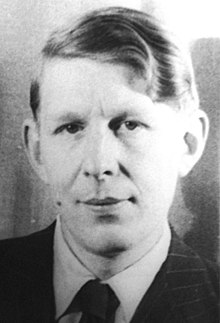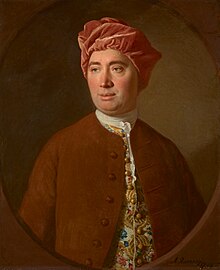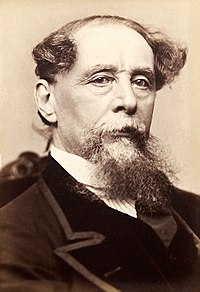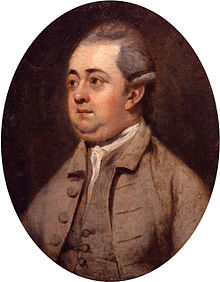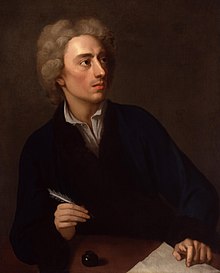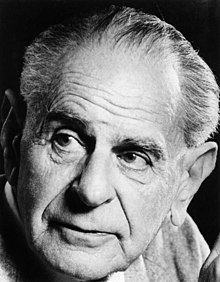
British male essayists
Alfred George Gardiner (2 June 1865 – 3 March 1946) was an English journalist, editor and author. His essays, written under the alias "Alpha of the Plough", are highly regarded.
8 episodes
Episodes in this category also belong to the following categories:
Auden
Melvyn Bragg and guests discuss WH Auden's life and poetry from Europe before WWII, reflecting on his travels to Spain, China and Germany and the rise of totalitarianism.
19 December 2019
Featuring: Mark Ford, Janet Montefiore, Jeremy Noel-Tod
CultureAmerican literary critics, American male dramatists and playwrightsEnglish male dramatists and playwrights20th-century English male writersAmerican male essayists, American male poets20th-century American male writersAmerican male non-fiction writersEnglish LGBTQ poetsGay academics20th-century English poets20th-century English non-fiction writersGay dramatists and playwrights, Gay poetsMembers of the American Academy of Arts and LettersEnglish emigrants to the United StatesAnglican poetsAmerican lecturersModernist theatre20th-century American essayistsEnglish male poetsAmerican LGBTQ poetsEnglish literary criticsAlumni of Christ Church, OxfordNaturalized citizens of the United StatesEnglish essayistsFormalist poetsLGBTQ AnglicansOxford Professors of PoetryEnglish male non-fiction writersBritish male essayistsDavid Hume
Melvyn Bragg and his guests discuss the work of David Hume, the philosopher and leading figure of the Scottish Enlightenment.
6 October 2011
Featuring: Peter Millican, Helen Beebee, James Harris
PhilosophyCriticism of rationalismEpistemologistsAction theorists18th-century British essayistsMetaphilosophersSkeptic philosophersPhilosophers of social scienceTheorists on Western civilizationPhilosophers of logicSecular humanistsSocial philosophersPhilosophy writersPhilosophers of economicsWriters about religion and sciencePhilosophers of identityBritish philosophers of educationVirtue ethicistsBritish male non-fiction writers18th-century British philosophersPhilosophers of psychologyPhilosophers of artCritics of the Catholic ChurchBritish critics of religionsPhilosophers of mathematicsAlumni of the University of EdinburghConservatismEmpiricistsOntologistsPhilosophers of mindDeist philosophersPeople of the Scottish EnlightenmentPhilosophers of religionFreethought writersBritish consciousness researchers and theoristsEnlightenment philosophersWriters about activism and social changePhilosophers of sciencePhilosophers of historyBritish male essayistsDickens
Melvyn Bragg discusses the achievements of Charles Dickens What is his political and literary legacy to our age?
12 July 2001
Featuring: Rosemary Ashton, Michael Slater, John Bowen
English travel writersEnglish prisoners and detaineesEnglish male dramatists and playwrightsEnglish AnglicansLiteracy and society theoristsAnglican writersEnglish male short story writersWriters of Gothic fictionEnglish philanthropistsEnglish historical novelistsTrope theoristsBurials at Westminster AbbeyVictorian novelists19th-century English novelists19th-century travel writers19th-century English non-fiction writers19th-century British journalists19th-century English historians19th-century British philanthropistsEnglish male novelistsBritish critics of religionsCritics of the Catholic ChurchPeople from Somers Town, LondonEnglish male poets19th-century pseudonymous writersLecturersEnglish reformers19th-century English dramatists and playwrights19th-century English poets19th-century British short story writersEnglish satiristsWriters about activism and social changeEnglish male non-fiction writersWriters from the London Borough of Camden19th-century English essayistsBritish social reformersBritish male essayistsEdward Gibbon
Melvyn Bragg and guests discuss the life and ideas of the writer of The History of the Decline and Fall of the Roman Empire, one of the most celebrated works of its kind.
17 June 2021
Featuring: David Womersley, Charlotte Roberts, Karen O'Brien
CultureEnglish rhetoriciansFellows of the Royal SocietyEnglish essayistsAlumni of Magdalen College, OxfordBritish MPs 1774–1780British critics of religionsEnglish ProtestantsEnglish male non-fiction writers18th-century English historiansPeople educated at Westminster School, LondonBritish MPs 1780–1784, Members of the Parliament of Great Britain for English constituenciesFreemasons of the Premier Grand Lodge of England18th-century English non-fiction writersTheorists on Western civilization18th-century English male writersIrony theoristsRhetoric theoristsBritish male essayistsMill
Melvyn Bragg discusses the 19th century political philosopher John Stuart Mill and his treatise On Liberty which is one of the sacred texts of liberalism.
18 May 2006
Featuring: A. C. Grayling, Janet Radcliffe Richards, Alan Ryan
PhilosophyBritish political philosophersHonorary Fellows of the Royal Society of EdinburghEnglish libertariansBritish philosophers of languageConsequentialistsInfectious disease deaths in FranceEnglish socialistsUtilitariansEnglish suffragistsTheorists on Western civilizationBritish ethicistsBritish socialistsEnglish political writersLogiciansEnglish feminist writers, English feministsBritish free speech activistsPhilosophers of sexualityPhilosophy writersBritish classical liberal economistsPhilosophers of economicsBritish social liberals19th-century English non-fiction writersFellows of the American Academy of Arts and SciencesPhilosophers of cultureRectors of the University of St AndrewsPhilosophers of psychologyBritish philosophers of mindEnglish logicians19th-century English philosophersBritish philosophers of logicEnglish autobiographersAnglo-ScotsUK MPs 1865–1868Empiricists19th-century English writersVoting theoristsEuropean democratic socialistsEnglish essayistsEnglish political philosophers19th-century English essayistsEnglish male non-fiction writersEnglish non-fiction writersPhilosophers of scienceEnglish people of Scottish descentPhilosophers of historyEnglish republicansScholars of feminist philosophyEnglish agnosticsBritish male essayistsPope
Melvyn Bragg and guests discuss the satirist Alexander Pope. One of the greatest poets of the English language, his brilliant satires have made him popular in our age but not in his own.
9 November 2006
Featuring: John Mullan, Jim McLaverty, Valerie Rumbold
Neoclassical writersEnglish Roman CatholicsTory poetsEnglish essayists18th-century English poetsPeople from the City of London18th-century British essayistsEnglish male poetsEnglish male non-fiction writersRoman Catholic writersTranslators of HomerEnglish Catholic poetsFreemasons of the Premier Grand Lodge of England18th-century English non-fiction writersTuberculosis deaths in England18th-century English male writersBritish male essayistsPopper
Melvyn Bragg discusses the philosopher Karl Popper, author of The Open Society and a seminal thinker about science.
8 February 2007
Featuring: John Worrall, Anthony O'Hear, Nancy Cartwright
PhilosophyBritish political philosophersEpistemologistsCambridge University Moral Sciences ClubForeign associates of the National Academy of SciencesTheorists on Western civilizationBritish ethicistsPhilosophers of logicKnights BachelorLogiciansPresidents of the Aristotelian SocietySocial philosophersPhilosophers of technologyRationalistsAristotelian philosophersPhilosophers of economicsWriters about religion and scienceWriters about globalizationBritish philosophers of educationBritish social liberalsRecipients of the Austrian Decoration for Science and ArtBritish male non-fiction writersPhilosophers of culturePhilosophers of mathematicsBritish historians of philosophyJewish agnosticsAcademics of the London School of Economics, British philosophers of scienceCritics of religions20th-century British philosophers20th-century Austrian philosophers, Austrian agnostics, Austrian essayists, Austrian logicians, British agnostics, British logicians, British people of Austrian-Jewish descent, Naturalised citizens of the United Kingdom, Writers from ViennaOntologistsPhilosophers of mindRecipients of the Pour le Mérite (civil class)MetaphysiciansJewish philosophersPolitical philosophersPhilosophers of religionBritish consciousness researchers and theoristsJewish ethicistsMembers of the Order of the Companions of HonourWriters about activism and social change20th-century British essayistsCritics of MarxismPhilosophers of historyFellows of the British AcademyMetaphysics writersBritish male essayistsWittgenstein
Melvyn Bragg discusses how Ludwig Wittgenstein, one of the greatest philosophers of the modern age has influenced contemporary culture with his ideas on language.
4 December 2003
Featuring: Ray Monk, Barry Smith, Marie McGinn
PhilosophyEpistemologistsCambridge University Moral Sciences ClubMetaphilosophersPhilosophers of social scienceTheorists on Western civilizationWittgensteinian philosophersPhilosophers of logicAnalytic philosophersPeople with post-traumatic stress disorderBisexual male writersSocial philosophersPhilosophy writersOrdinary language philosophyFellows of Trinity College, CambridgePhilosophers of culturePhilosophers of languageLGBTQ mathematicians, LGBTQ philosophersPhilosophers of artBertrand Russell Professors of PhilosophyPhilosophers of mathematicsJewish agnostics20th-century British philosophersAlumni of Trinity College, CambridgeLinguistic turnOntologistsPhilosophers of mindAustrian people of Jewish descent, Austro-Hungarian military personnel of World War I20th-century Austrian philosophers, Austrian agnostics, Austrian essayists, Austrian logicians, British agnostics, British logicians, British people of Austrian-Jewish descent, Naturalised citizens of the United Kingdom, Writers from ViennaMetaphysiciansJewish philosophersBisexual military personnel20th-century British essayists20th-century British non-fiction writersBritish male essayists
